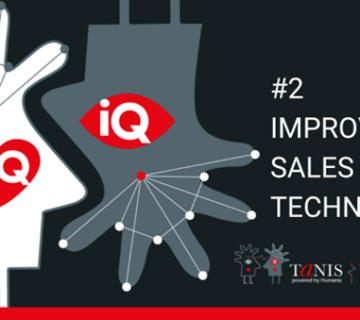How Emotional Intelligence, Intuition, and Influence Can Boost Your Sales and Drive Organizational Growth
In our customer-first world, salespeople are taught to place the customer at the center of their strategies. While this typical approach is based on how to best address the ever-changing customer needs, most of the time, salespeople fail to consider an important aspect of the sales process: emotions; both their own and the buyers’.
Emotions, and especially intuition and deliberation are key when it comes to making decisions, a recent research in psychology suggests. Study findings published in Psychology and Marketing* suggest that intuition has a great impact on a salesperson’s adaptability and resulting performance.
This is where the Art & Neuroscience of Intuitive Selling or TANIS comes in. TANIS is an empowerment program by the Strategic Soft Skills Institute, designed for everyone who is in a selling position and is struggling to build sustainable relationships with their buyers. If you are dealing with difficult buyers and worry about non-productive emotions that block your way into meeting your sales objectives, then you should pay attention to TANIS.
Through this innovative program, you unleash the power of emotional intelligence, intuition, and influence in order to assess and serve the customer’s needs in the best way and improve sales. Neuroscience helps you better understand how to recognize the behavioral patterns associated with different buyer styles and adapt your own selling style.
Understanding and managing your own emotions, as well as recognizing and responding to the emotions of others, can help build rapport and trust with customers. Emotional intelligence can also help you adapt your sales pitch to appeal to different personalities and communication styles. Also, salespeople who have a good sense of intuition can often read their customers’ needs and respond in a way that feels personalized and authentic. Finally, using positive influence means closing the deal while at the same time, maintaining a good working relationship, building loyalty with your customers. You learn how to handle objections effectively, regulate your emotions and develop deeper consultative relationships, thus becoming a trusted advisor.
Armed with these behavioral tools for managing one’s own strong emotions and the strong emotions of others, salespeople can drive more positive results, thereby organizational growth.
Do you want to learn more about the program “The Art & Neuroscience of Intuitive Selling”? Get in touch with our experts today.
*How Do Salespeople Make Decisions? The Role of Emotions and Deliberation on Adaptive Selling, and the Moderating Role of Intuition, David A. Locander, Jay P. Mulki, Northeastern University, Frankie J. Weinberg, Loyola University New Orleans




